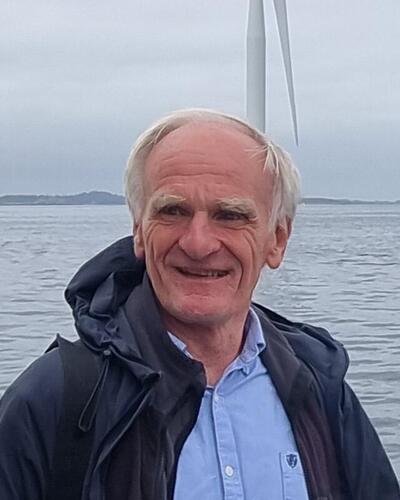Ny professor i offshore vind
Hovedinnhold
Dette intervjuet med UiB sin nye professor i Offshore Vind, Finn Gunnar Nielsen, ble gjennomført av NORCOWE (Norwegian Centre for Offshore Wind Energy) og er hentet i sin helhet fra deres nettsider. Finn Gunnar skal også holde en presentasjon under NORCOWE 2016 konferansen den 14. September. Følg denne linken for å se hele programmet og for å registrere deg.
Short summary of the career:
Finn Gunnar Nielsen has a background in engineering from NTNU, with a PhD within Marine Hydrodynamics. For more than 30 years he has worked within R&D related to dynamics of offshore structures. He retired from a position as senior advisor within renewable energy in Statoil in July.
He has accepted a full-time position as professor at the Geophysical Institute, University of Bergen, effective from September 1st.
He has been active in NORCOWE for many years. He is currently head of the Scientific Advisory Committee and member of NORCOWE’s centre management group. He has been heavily involved in NORCOWE’s summer schools.
What is your motivation for taking the position as professor in offshore wind at University of Bergen?
For more than 20 years I have had a position as adjunct professor, first at NTNU and lately at UiB. I have always enjoyed working within academia and the contact with students. Most of my career I have be working on implementing new methods and results in the industry, and now I think the time has come to turn around and try to use some of that experience in education.
What will be your main research area at UiB?
The position relates to offshore wind energy. I have been working in that field for more than 10 years. I plan to continue research within offshore wind and hope to contribute as a bridge-builder between the strong research groups within meteorology and oceanography at GFI and the engineering challenges within marine renewable energy.
What about teaching?
This semester I will start up lecturing parts of the Energi200 course. This is a mandatory course for the students in the energy master programme. That programme has become very popular, so I hope to have a good time together with very motivated students. Later on, we may expand our previous seminars on offshore wind energy. There are a lot of challenging topics to take on.
What is the Geophysical Institute’s major contribution to the development of offshore wind?
The main challenge for offshore wind, as for most renewables, is to reduce the cost of energy. For offshore wind there has been a strong focus on reducing construction and operational costs. However, equally important is to increase the production. Here the strong meteorological competence at GFI may play a key role. In addition, the oceanographic competence is crucial to understand the loading mechanisms on offshore wind turbines from waves and currents.
Tusen takk til NORCOWE for å la oss bruke dette intervjuet. Besøk deres hjemmesider på www.norcowe.no!

